This is a 1954 Coupe that was restored back to the condition it was in during its glory days by Art Chrisman.
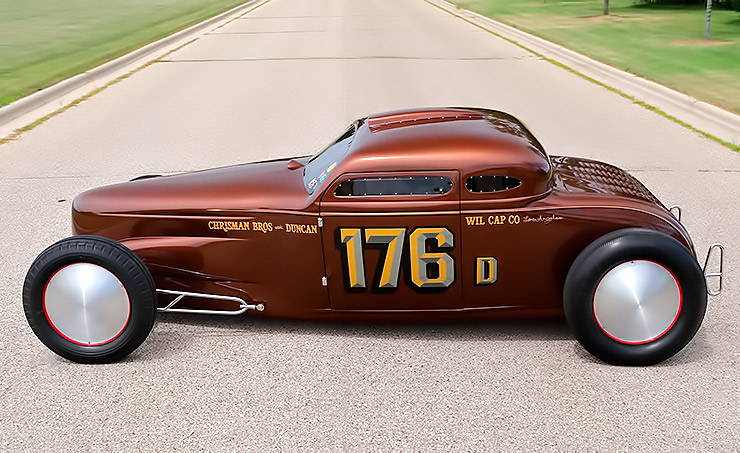
–The coupe features a 331 cubic inch Chrysler V8 with hemispherical cylinder heads which is connected to a modified 1940′s Ford manual transmission. It’s a mid-engine that was revolutionary back then. The front suspension is from a 1938 Ford and has a transverse leaf spring configuration with drum brakes only at the rear.
The coupe began as an abandoned Model A, and it was actually built by Art and Lloyd Chrisman who were hot rodding pioneers that learned many of the skills necessary from their father and worked with him at Chrisman & Sons Garage. The Coupe was first campaigned during the 1953 Bonneville Speed Week.
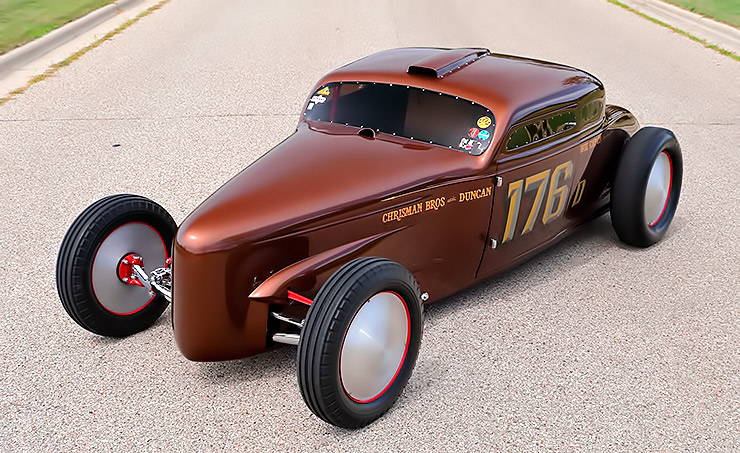
They were very successful at drag racing and famously achieved speeds of 140 and 180 mph over a quarter of a mile and set a record with the car you see here. This made the car one of the most recognizable cars to all enthusiasts of the time and was even featured on the front of Hot Rod magazine who called it “The Most Fantastic Coupe”.
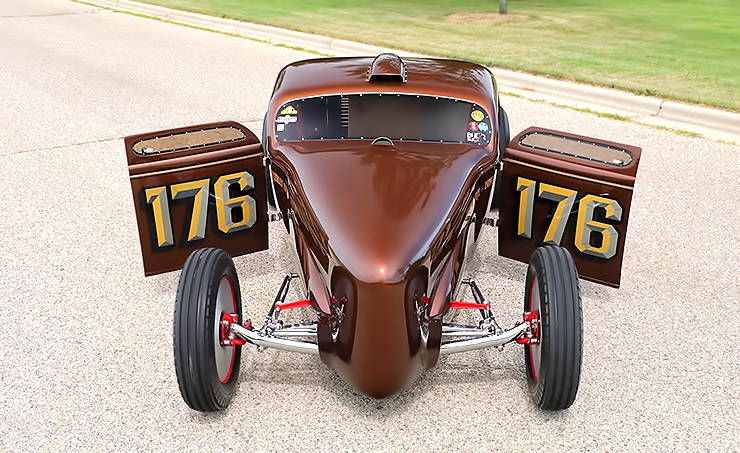
After appearing on the cover of the February 1954 issue of “Hot Rod” under the headline “The Most Fantastic Coupe,” the car returned that year with, setting new class B and C records at 180.87 MPH and 180.08 MPH respectively. A 243 cubic inch Dodge engine was reserved for Class B competition, while a 276 cubic inch DeSoto engine was reserved for Class C.
Returning in 1955 with a larger 331 cubic inch Chrysler engine for a new attempt at the Class D record, they set the new D class record at more than 196 MPH, with a 5% dose of nitro. Hoping to reach the coveted 200 mile per hour mark, the brothers contemplated an increase to 20% nitro, but they decided to retire from land-speed racing when their friend John Donaldson, driving the Reed brothers belly tank, crashed and died on the very next run.
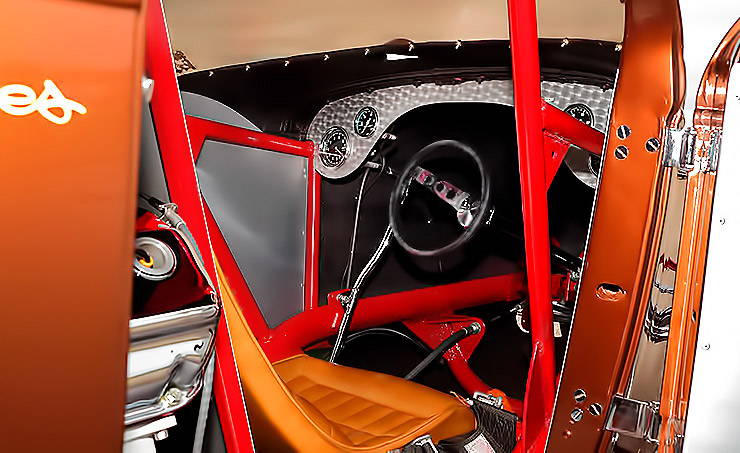
From the outside this car resembles a modified 1930 Model A Coupe but the brothers did a fantastic amount of work to make the car ready for its racing life. The most significant changes were the 3 1/2 inch space frame and they also created a single unit at the rear for the engine and transmission components so they could be easily replaced.
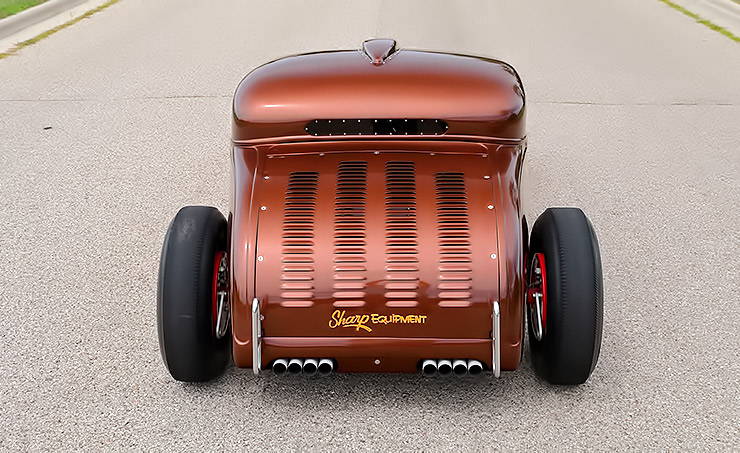
The front suspension features a leaf-spring that was salvaged from a 1938 Ford with a pair of hydraulic shock absorbers. However the rear axle was mounted directly onto the tubular chassis and had a Halibrand center section allowing the gear ratios to be quick changed when required.










